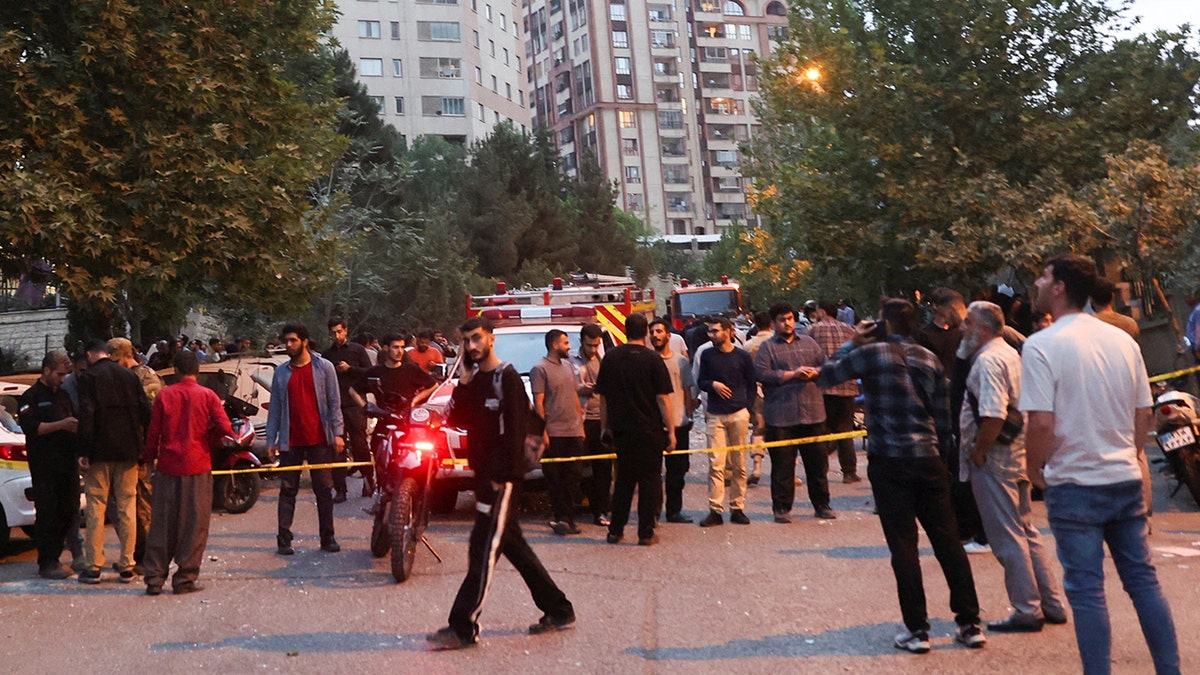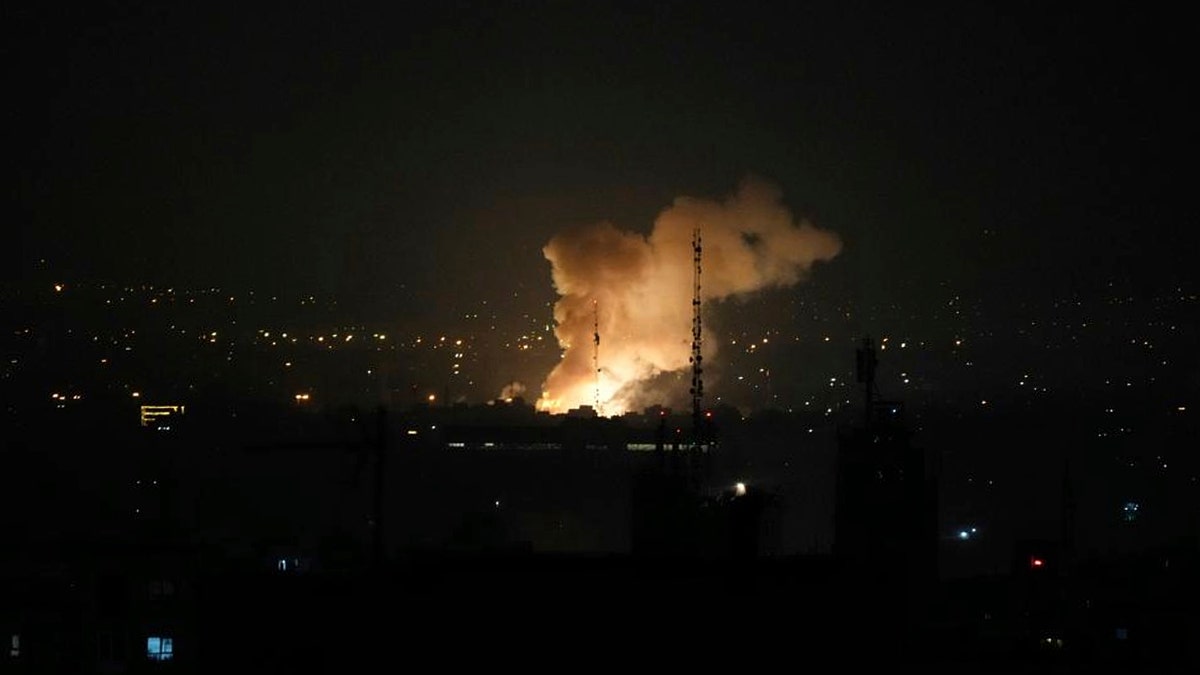

A New York Times reporter walked back her X post after facing backlash for suggesting that Israeli strikes on Iran randomly hit residential neighborhoods.
"A friend in Tehran sent me this video, apartment complex housing university professors attacked directly across the street from her house," Farnaz Fassihi, United Nations bureau chief for The New York Times, said in a Friday X post.
"The randomness of strikes in residential neighborhoods have terrified Iranians," she added.
TRUMP FACES CRITICAL DECISION AS MIDDLE EAST TEETERS ON BRINK OF WAR

People gather in the street in the aftermath of Israeli strikes, in Tehran, Iran, June 13, 2025. (West Asia News Agency via REUTERS)
On Thursday, the Israeli Defense Forces (IDF) launched extensive strikes on Iran's military infrastructure and nuclear program, killing Commander-in-Chief of the Islamic Revolutionary Guard Corps (IRGC) Hossein Salami and the country's chief of staff of the armed forces, Gen. Mohammad Bagheri.
While Fassihi called the strikes random, Israeli Prime Minister Benjamin Netanyahu has said the strikes were targeted, writing in a Thursday X post that, "Moments ago, Israel launched Operation ‘Rising Lion’, a targeted military operation to roll back the Iranian threat to Israel's very survival. This operation will continue for as many days as it takes to remove this threat."
In a later post on Friday, Fassihi said, "About my tweet yesterday, I meant to say the sense of randomness caused by the strikes in residential neighborhoods has terrified Iranians. As we've reported, Israel has said the strikes are targeted."
Fassihi faced strong pushback on X at first for suggesting the strikes were random. She eventually prevented users from replying to the post, although people could still "quote" the post and comment on it.
Podcaster and writer Stephen Miller posted on X, "There is absolutely nothing random about these strikes but that doesn't stop New York Times reporters. Comments off."
ISRAEL RELEASES VIDEO OF STRIKE ON IRANIAN BALLISTIC MISSILES AIMED AT JEWISH STATE

People attend an anti-Israeli protest following the Israeli strikes on Iran, in Tehran, Iran, June 13, 2025. Majid Asgaripour/WANA (West Asia News Agency) via REUTERS ATTENTION EDITORS - THIS PICTURE WAS PROVIDED BY A THIRD PARTY
Guy Benson, Townhall political editor, also took to X to address Fassihi’s post, saying, "Using the word 'randomness' to describe the precision of what is happening is quite a choice."
Noah Rothman, a senior writer at National Review Online, said, "Look. Nobody likes it when their city is bombed. But in the light of day, amid evidence of the surgical precision with which Israel targeted regime figures, many of whom are not exactly beloved, the Iranian public's perspective should be expected to evolve."
Radio host Tony Katz said her post did not live up to journalistic standards.
"This is not journalism," Katz said. "This is propaganda."
In a statement to Fox News Digital, The New York Times said that it is "aggressively reporting on Israel's strikes on Iran, one of the most oppressive countries for journalists to access in order to report and verify facts in breaking news moments." The paper added, "One of the ways we provide insight into what's happening with the rest of the world is to share videos taken by people on the ground, including their perspectives."

Smoke rises after an explosion in Tehran, Iran, Friday, June 13, 2025. Israel attacked Iran's capital early Friday, with explosions booming across Tehran.(AP Photo/Vahid Salemi)
